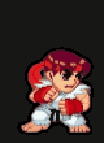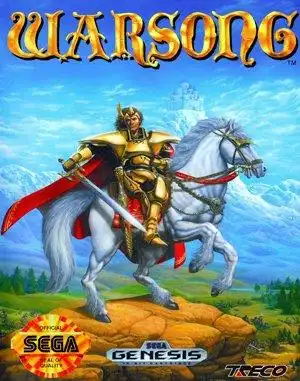Warsong Sega Genesis: Reliving a Strategy RPG Classic
Remember the days when strategy RPGs on consoles felt like hidden treasures? For many Sega Genesis owners, one such gem was undoubtedly Warsong. Released in the West by Treco, this wasn't just another fantasy game; it was a deep, challenging tactical experience that demanded patience, planning, and a willingness to embrace the consequences of your battlefield decisions.
Often overshadowed by bigger names, Shining Force, Warsong carved out its own niche with a unique blend of grid-based combat, unit management, and persistent character progression. If you spent hours moving pixels across its maps, you know the feeling – that mix of strategic satisfaction and nail-biting tension.
What Exactly Was Warsong?
At its core, Warsong is a turn-based strategy RPG. You control named commanders, each leading a squad of generic units. The goal is typically to defeat enemy commanders or achieve specific objectives across a series of chapters. What set it apart was the leader-unit dynamic: units gained stat bonuses when near their commander, and the commander's death meant the entire squad routed. This made protecting your heroes paramount.
It wasn't about controlling individual soldiers; it was about managing troop types, leveraging terrain, and positioning your leaders wisely. Think rock-paper-scissors with swords, spears, and horsemen, plus a touch of magic and monsters later on.
Stepping Onto the Battlefield
The gameplay loop involved moving your commanders and their attached units across a tactical map. Combat was a simple affair of selecting an enemy and watching a short, dynamic battle animation. But the strategy lay in the setup:
- Unit Types: Hiring the right units was crucial. Infantry, cavalry, archers, and later, magical and monstrous units, all had strengths and weaknesses against each other and on different terrain.
- Terrain: Forests, mountains, and water didn't just look different; they provided defensive bonuses or hindered movement, adding layers to your tactical approach.
- Commander Aura: Keeping units close to their leader was key for stat boosts, forcing you to balance offensive pushes with maintaining formation integrity.
Battles could be lengthy affairs, sometimes stretching past an hour per map, a common trait for SRPGs of the era but one that required dedication.
The Permadeath Sting
One of Warsong's most memorable (and sometimes frustrating) features was its permanent death mechanic for commanders. If a named character fell in battle, they were gone for good. This wasn't like modern games where a character is just temporarily unavailable. This high-stakes system meant every move felt significant.
Losing a key commander, especially one you'd invested experience and class promotions into, often led to a swift reset of the console. It was brutal, unforgiving, and undeniably added to the game's challenge and replayability as you sought better strategies to keep everyone alive.
Graphics, Sound, and That Retro Vibe
Warsong's presentation was classic Genesis. It featured colorful, anime-style character portraits during dialogue and battle animations that, while simple by today's standards, felt exciting at the time. The map graphics were functional and clear, effectively conveying terrain.
The music, while perhaps not as iconic as some Genesis soundtracks, was atmospheric and fitting for a fantasy strategy game. It set the mood without being overly distracting during those long strategic turns. It captured that specific 16-bit era feel perfectly.
More Than Just a Game: Story, RPG Elements, and Legacy
Beyond the battlefield, Warsong offered a compelling, albeit classic fantasy, narrative. You followed Prince Garett as he fought to reclaim his kingdom and wield the legendary sword Warsong against invading forces. Interspersed between battles were story scenes that helped flesh out the characters and world.
The RPG elements were strong:
- Experience and Leveling: Commanders and their units gained experience, leading to stat increases.
- Class Promotion: Commanders could promote through branching class trees, specializing them for different roles and unlocking new unit types they could command. This added significant depth and replayability, encouraging experimentation.
- Gold Management: Earning and spending gold on new units and equipment was a vital part of preparing for the next chapter.
This blend of strategic combat and meaningful RPG progression is why Warsong resonated with players and why many still hold it in high regard today.
The Langrisser Connection
For fans of Japanese strategy games, Warsong is instantly recognizable as the first game in the long-running Langrisser series (known as Der Langrisser in Japan). While the Western release was the only Langrisser title to hit the Sega Genesis under its original name, subsequent games appeared on other platforms, and the series continues today with remakes and new entries. Warsong was the foundational entry that introduced the core mechanics and world that would evolve over decades.
Why Warsong Endures
Warsong on the Sega Genesis might have been a niche title, but its blend of challenging strategy, engaging RPG elements, and the high stakes of permanent death created a memorable experience. It wasn't easy, and it certainly demanded your time, but the satisfaction of successfully navigating its difficult maps and building up your commanders was immense.
For many, it's a source of fond childhood or teenage memories, a game played late into the night despite its lack of mid-battle saves. It stands as a testament to the depth and quality found even in lesser-known titles on the Genesis and remains a beloved classic for strategy RPG aficionados and retro gamers alike.
Warsong Sega Genesis FAQ
Is Warsong the same as Langrisser?
Yes, Warsong is the Western release of the very first game in the Langrisser series, originally titled Langrisser in Japan.
Is Warsong a difficult game?
Warsong is generally considered quite challenging, especially due to the permanent death of commanders, which can force players to restart chapters if a key character falls. Battles can also be lengthy.
How does permanent death work in Warsong?
If a named commander's HP drops to zero during a battle, they are permanently removed from your roster for the rest of the game. Their units also disappear.
Can I play Warsong today?
While finding an original Sega Genesis cart might take some searching, you can often play Warsong via emulation on modern devices or potentially find it included in retro game collections or digital storefronts that feature classic titles.


